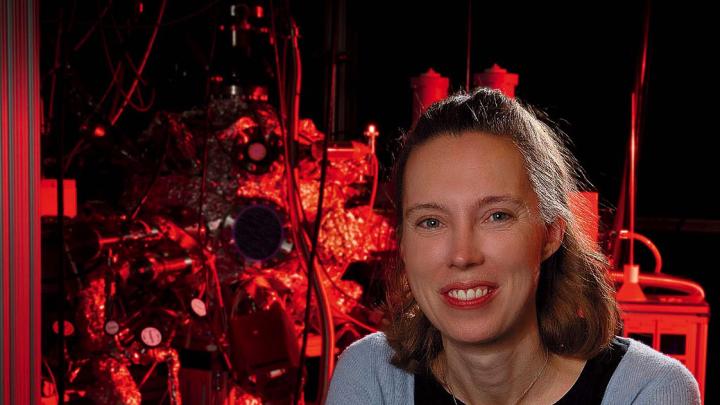Growing up in Lutheran Sweden, Karin Öberg had no inkling that she would one day become an astrochemist, the first to observe a complex organic molecule in the freezing cloud of gas and dust surrounding a young star—or that she would convert to Catholicism. As a young student, she was interested in literature, history, and art; and it was philosophical questions about “who we are, where we come from” and the origins of the universe that made her think, as she neared college and decided to pursue science, that physics and astronomy were the most interesting fields to study. But in the competitive environment at Caltech, she learned her aptitude was for chemistry: “I had to choose. Do I go with my heart, or my talent?” She chose chemistry, before discovering she could apply that talent to important questions in astrophysics. One such big question is, Are the chemical antecedents of life present outside the solar system? To explore this, Öberg, professor of astronomy, studies ice chemistry in her lab. “The clouds where stars and planetary systems form are close to absolute zero,” she says. “If a molecule hits a grain of dust, it will stick and form an ice made of water, dry ice, or [carbon monoxide]. Any chemistry is going to happen either on top of this icy layer or inside the ice.” The James Webb Space Telescope now enables her to study the composition of these icy grains among the inner regions of distant solar systems, where Earth-like planets form in the “habitable zone.” Could the precursors of life exist there? Some questions only science can answer, with others better suited to theology. Whether intelligent life exists elsewhere, she says, is a question on which both her science and religion are currently “agnostic.”
Karin Öberg

Karin ÖbergPhotograph by Stu Rosner
You might also like
Breaking Bread
Alexander Heffner ’12 plumbs the state of democracy.
Reading the Winds
Thai sailor Sophia Montgomery competes in the Olympics.
Chinese Trade Dragons
How Will China’s Rapid Growth in the Clean Technology Industry Reshape U.S.-China Policy?
Most popular
More to explore
Harvard Philosophy Professor Alison Simmons on "Being a Minded Thing"
A philosopher on perception, the canon, and being “a minded thing”






